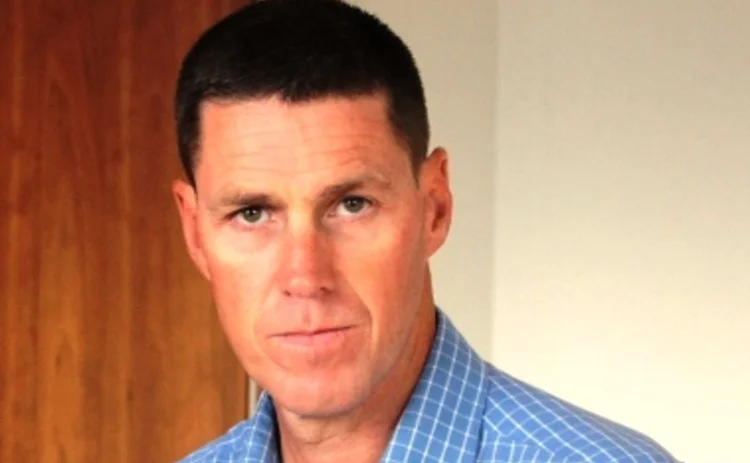Teenage Sex and the Virtues of Being Nice

Much has been written in the pages of Waters magazine and on the WatersTechnology website about the value people bring to the organization. And while it might appear to be counterintuitive for a technology publication to "big-up" individuals' indispensability to their various capital markets firms, it's appropriate to remind ourselves that similar to how firms cannot hope to operate effectively without the necessary underlying technology enabling the business, they also cannot perform anywhere near their potential without the human capital to devise trading strategies, manage the inherent risks associated with doing business, and perhaps most importantly, tend to the machines.
This theme, while touched on by a number of panelists at this year's Waters USA conference, held on December 9 in Manhattan, was fully explored by the final panel of the day focusing on the outlook for 2014, where panelists posited that resourceful and well-rounded technologists are what most capital markets firms need, and not necessarily the most gifted code writers and data management experts. Sure, many firms might have a large number of highly specialized technology-related roles that by virtue of their complexity demand a minimum level of expertise to get the job satisfactorily done, but from a CIO's perspective, flexibility and resourcefulness ─ the ability to understand what specifically is required by the business; translating those requirements into simple, easy-to-use technology that does exactly what its end-users require it to; and individuals' versatility and amenability to work across a number of different areas from a technology and operations perspective ─ will always trump narrow focus and specialization.
Lifting the Hood
While on the subject of lifting the hood and peering within financial services firms and getting to know the personalities behind their technology stacks, it never fails to amaze me how "normal" a lot of the senior technology decision-makers are in our industry. This notion again occurred to me during the cocktail hour immediately after the conclusion of yet another hectic by hugely successful Waters USA conference. I was lucky enough to chat to Michael Radziemski, CIO of Lord Abbett and Co., for about 20 minutes, and not once did the conversation turn to technology and finance. Instead, we chatted about normal stuff: skiing, kids, Hurricane Sandy last year and Radziemski's delight at the opportunity to fire up his pride and joy ─ his recently acquired generator that he houses in his basement, which allowed him to power the fridge, the TV, and, most importantly, his broadband router, while the rest of neighborhood sat silent.
Refreshing and Candid
My conversations with Enrique Smith, CIO of CIFC, and Anthony Vigilante, CIO of MacKay Shields, both based in Manhattan, were similarly refreshing and candid, not because we chatted about programming FPGAs to carry out blindingly fast calculations and the development and implementation of intuitive algorithms on the verge of developing something not a million miles from an artificial consciousness, but because we didn't. Instead, we "shot the breeze" about this and that, so that in the event that our paths cross again sometime in the future in a more professional context (which I'm sure they will), that familiarity will serve as a good basis from which to continue where we left off.
Something else, in addition to the normality exhibited by Radziemski, Smith and Vigilante, occurred to me during those conversations: whoever coined the phrase "nice guys finish last," is just plain wrong. Irrespective of the the origins of the aphorism ─ generally attributed to baseball manager Leo Durocher, who, on July 6, 1946, commented that "the nice guys are all over there, in seventh place," when referring to the 1946 New York Giants, who finished seventh and last in the National League ─ here were three guys representing top-notch buy-side institutions who seemed thoroughly decent and down to earth, although I concede that given my position as the editor of a well-established and widely read industry publication, they were bound to be on their best behavior.
But to my mind, nice guys get to the top of our industry through a mix of being in the right place at the right time; by having the necessary vision and surrounding themselves with competent technologists, keen on buying into that vision and delivering it from a technology perspective; and by being good, solid citizens.
Nice Guys
But to my mind, nice guys get to the top of our industry through a mix of being in the right place at the right time; by having the necessary vision and surrounding themselves with competent technologists, keen on buying into that vision and delivering it from a technology perspective; and by being good, solid citizens. Being a nice guy and not having much more substance to offer the business is not enough to get you to the top, but the same rings true for those brilliant technologists, who, for one reason or another, do not possess the necessary social skills to transform their work places in the sorts of environments conducive to high productivity and the pursuit of excellence.
Finally, on the last day of another year, it seems appropriate to sign off with a pair of quotes ─ one from the sell side and one from the buy side, both produced at this year's Waters USA conference ─ illustrating that, while our industry tends to offer up few chances for a good old chuckle, if you're patient and you're in the right place at the right time, anything can happen.
My Sell-Side Quote of the Year:
"Everyone knows we don't like people." ─ Tsvi Gal, CTO of Morgan Stanley, produced this tongue-in-cheek gem, poking fun at the stereotypical image many people have of IT specialists, seeing them as "techies" who, for example, might prefer to hammer out lines of code and hide behind emails than deal, face-to-face, with the people they service.
My Buy-Side Quote of the Year:
"Big data is like teenage sex ─ everyone says they're doing it, but in reality, nobody is. And if they are, they're probably doing it wrong!" ─ Enrique Smith, CIO of Park Avenue-based relative value alternative credit manager CIFC, created a bit of mischief by arguing that industry participants who claim to have effective big-data strategies in place is analogous to high-school locker-room talk about outrageous teenage sex claims. Needless to say, Smith had everyone's attention for the duration of the 40-minute long panel discussion.
Thanks
Thank you to everyone involved in the production Waters, which turned 20 this year, for all your hard work, advice and commitment. Thank you also to those individuals and firms who continue to support this great publication, both editorially and commercially. From all of us at Waters to all of you, have a brilliant and fulfilling year, both organizationally and personally.
Victor Anderson
Editor-in-Chief, Waters
Only users who have a paid subscription or are part of a corporate subscription are able to print or copy content.
To access these options, along with all other subscription benefits, please contact info@waterstechnology.com or view our subscription options here: http://subscriptions.waterstechnology.com/subscribe
You are currently unable to print this content. Please contact info@waterstechnology.com to find out more.
You are currently unable to copy this content. Please contact info@waterstechnology.com to find out more.
Copyright Infopro Digital Limited. All rights reserved.
As outlined in our terms and conditions, https://www.infopro-digital.com/terms-and-conditions/subscriptions/ (point 2.4), printing is limited to a single copy.
If you would like to purchase additional rights please email info@waterstechnology.com
Copyright Infopro Digital Limited. All rights reserved.
You may share this content using our article tools. As outlined in our terms and conditions, https://www.infopro-digital.com/terms-and-conditions/subscriptions/ (clause 2.4), an Authorised User may only make one copy of the materials for their own personal use. You must also comply with the restrictions in clause 2.5.
If you would like to purchase additional rights please email info@waterstechnology.com
More on Emerging Technologies
Bank of America reduces, reuses, and recycles tech for markets division
Voice of the CTO: When it comes to the old build, buy, or borrow debate, Ashok Krishnan and his team are increasingly leaning into repurposing tech that is tried and true.
Waters Wavelength Ep. 313: FIS Global’s Jon Hodges
This week, Jon Hodges, head of trading and asset services for Apac at FIS Global, joins the podcast to talk about how firms in Asia-Pacific approach AI and data.
Project Condor: Inside the data exercise expanding Man Group’s universe
Voice of the CTO: The investment management firm is strategically restructuring its data and trading architecture.
BNP Paribas explores GenAI for securities services business
The bank recently released a new web app for its client portal to modernize its tech stack.
Bank of America and AI, exchanges feud with researchers, a potential EU tax on US tech, and more
The Waters Cooler: Broadridge settles repos in real time, Market Structure Partners strikes back at European exchanges, and a scandal unfolds in Boston in this week’s news roundup.
Bloomberg rolls out GenAI-powered Document Insights
The data giant’s newest generative AI tool allows analysts to query documents using a natural-language interface.
Tape bids, algorithmic trading, tariffs fallout and more
The Waters Cooler: Bloomberg integrates events data, SimCorp and TSImagine help out asset managers, and Big xyt makes good on its consolidated tape bid in this week’s news roundup.
DeepSeek success spurs banks to consider do-it-yourself AI
Chinese LLM resets price tag for in-house systems—and could also nudge banks towards open-source models.








